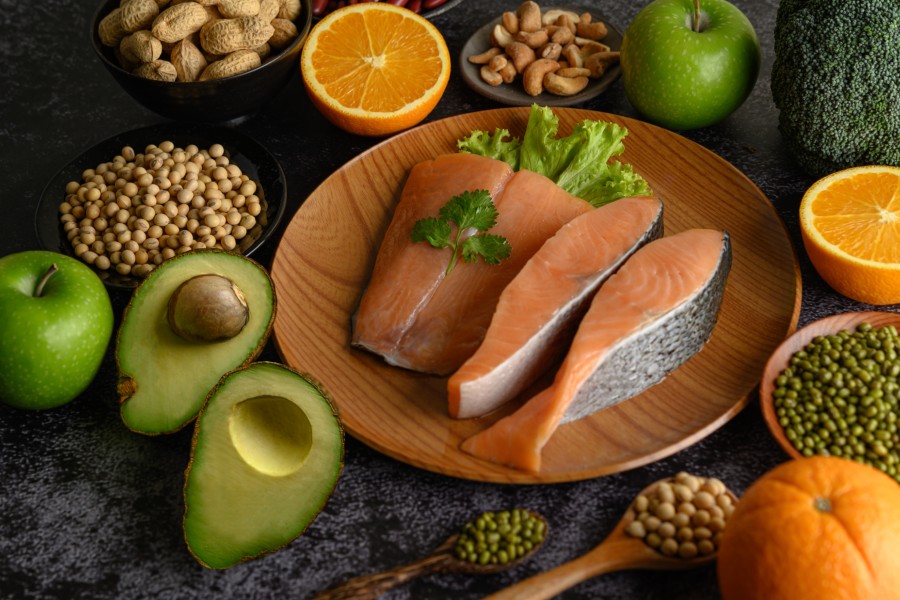 The consumption of organic foods has significantly grown in the past couple of years, especially in the United States.
The consumption of organic foods has significantly grown in the past couple of years, especially in the United States.
Organic food is not only safer, healthier, and tastier compared to conventionally grown food but it’s also good for the environment as well as the well-being of animals. This is because organic farming tends to improve the quality and conservation of groundwater which ultimately reduces pollution and provides a safer habitat for people and animals.
More and more people are now subscribing to Prepared Meal Delivery services. These allow them to use meal kit coupons and related discounts for meal kits, meat and groceries delivery, vegan meals, organic foods, etc. the most commonly consumed organic foods are fruits, vegetables, meat, dairy products, and grains. Surprisingly, processed organic products like sodas and ice cream are also available in the market. In this article, we’ll compare organic and non-organic foods and their benefits to human health.
What exactly is organic food?
The word “organic” refers to how a certain type of agricultural food product is grown or processed. Organic food from plants and animals is generally produced through farming practices that only use natural substances. In simple terms, no artificial chemicals, hormones, antibiotics, or GMOs are used in the production of organic food. Crops that are grown organically only use natural fertilizers like manure to improve soil quality and hence boost plant growth.
Additionally, for food products to be labeled organic, they should be free of any artificial food additives like artificial sweeteners, colors, flavors, and preservatives.
Do organic food and natural food refer to the same thing?
Keep in mind that organic and natural are not interchangeable terms. Natural food, in general, refers to food that has no artificial preservatives, colors, or flavor. This does not touch on how the food was grown or produced. Here are some of the terms on food labels you need to be familiar with to identify truly organic food:
- 100% organic
This means that the food is made entirely from organic ingredients
- Organic
This means that at least 95% of the ingredients in this food are organic
- Made with organic ingredients
This means that at least 70% of the ingredients are organic. Anything below this cannot be labeled organic.
Other labels that are also found on food products that shouldn’t be confused with “organic” are hormone-free and free-range. These are found on certified beef products and they don’t indicate that the farmer followed all guidelines for organic certification. So one should always read labels carefully before buying anything in the store. Just because something is organic doesn’t mean that it’s nutrient-dense and that the ingredients are necessarily a healthier alternative. This is because some organic foods still have high fat, salt, or sugar content.
Benefits of eating organic foods
How the food you eat is grown or raised usually has a significant effect on your overall health as well as that of the environment. There is lots of scientific evidence suggesting that organic foods offer us numerous benefits to people, plants, animals, and the environment as compared to regular foods. Let’s take a look at some of the benefits:
- Nutrition and health
Overall, organic foods are a healthier option that contains more vitamins, minerals, enzymes, and micronutrients. It provides people with better nourishment compared to genetically modified food or conventional processed packaged foods. Since no chemical fertilizers or pesticides are used, organic foods don’t contain any toxic chemicals that are harmful to us.
Cleaner food, in this case, organic food, means cleaner diets which attribute to a cleaner bill of health. While the results may not be visible immediately but in the long term, the consequences of a significantly stronger immune system are noticeable.
- Better taste and freshness
Apart from nutrition, organic food is tastier because fruits, vegetables, and grains are allowed more time to mature. Additionally, you will be almost certain that you are consuming fresh food. This is because the production process is guided by strict standards which stipulate that no artificial chemicals should be added. Since no preservatives are added, the food has a shorter shelf life and should be consumed within a certain period. It’s for this reason that organic foods are sold locally – nearby to where they’re grown or produced.
The foods are full of flavor so they don’t need any additives to taste better. Stale food that has been on the shelf for long tends to lose some of the flavor or juices.
- Water, soil health, and environment
Organic farming poses very minimal interference to the environmental resources that support healthy living. It’s no doubt better for the environment as the practices used help reduce pollution, soil erosion, increase fertility, and conserve water as well as energy.
Farming without harsh chemicals is beneficial to the farmworkers, the animals on those farms, the nearby birds, and the soil. Organic farming creates healthy soil which is the basis for organic agriculture. When crops are cultivated on healthy soil, the crops can resist diseases better, survive drought, and tolerate pests.
Water is yet another very important resource for growing food. Organic farming eliminates the possibility of harmful chemicals getting into our water supplies. choosing to grow and consume organic food protects water reservoirs from toxic runoff that conventional farming produces.
Are there any downsides to purchasing organic foods?
The only major concern with organic food is the cost as it usually costs a lot more than its conventional counterparts. This means that it may not be easily accessible for lots of people. The high prices are attributed to the farming practices that are labor-intensive and often more expensive. Organic certification is expensive and organic feeds for animals cost double the regular feeds.
Overall, organic food is worth the expense because they significantly reduce exposure to artificial chemicals which ultimately saves us hospital visits in the future. To keep the cost of organic food within your budget, you can shop at the farmer’s market and whenever possible, buy in season.
Conclusion
Initially, organic food could only be found in health food stored but nowadays it’s available in regular supermarkets. This is, especially, after numerous research has proven the numerous health benefits of organic foods compared to conventionally grown food.
When deciding whether to go the organic way or not, we advise that you make the decision based on your dietary needs and personal preferences. Check the vitamin and mineral content in the food as opposed to just using the organic versus conventional basis.
Photo credit: themealkitreview.com
Become a Harlem Insider!
By submitting this form, you are consenting to receive marketing emails from: Harlem World Magazine, 2521 1/2 west 42nd street, Los Angeles, CA, 90008, https://www.harlemworldmagazine.com. You can revoke your consent to receive emails at any time by using the SafeUnsubscribe® link, found at the bottom of every email. Emails are serviced by Constant Contact








